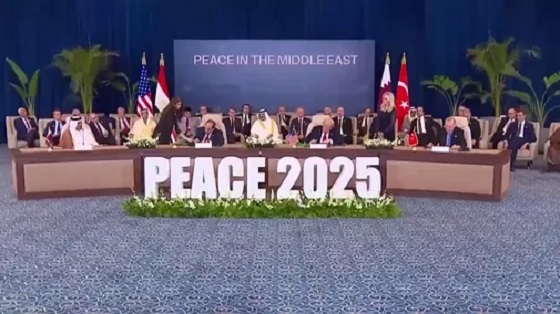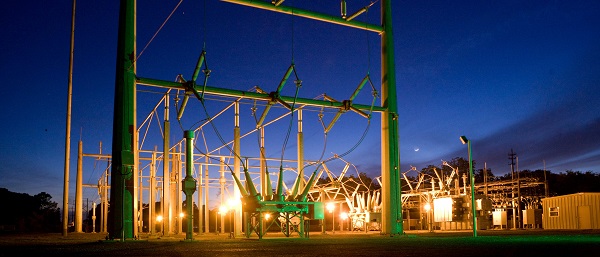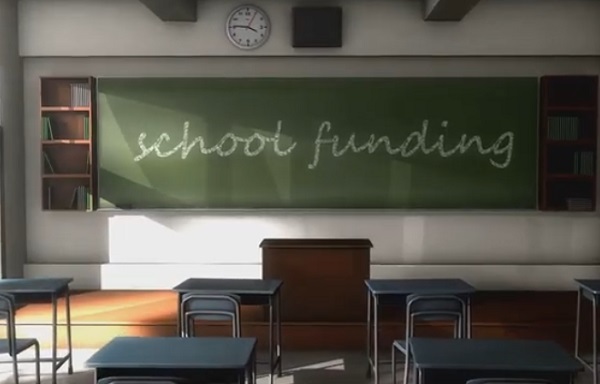Opinion
Is the City of Red Deer a Small Tent that is getting even smaller?
Red Deer appears to be shrinking in more ways than in population. Our city is becoming a smaller and smaller tent. The most recent example is the city’s decision to withdraw from the Central Alberta Economic Partnership, (CAEP).
With a partnership of 40 municipalities representing 300,000 residents, and Red Deer representing 1/3 of the population. It is a commendable group seeking solidarity in voice with the larger governments. This was a big tent endeavour that could be a help or a hindrance, but as in any group it would be impossible to get unanimity on any issue. Of course politics can impede or derail even the best of intentions.
Perhaps Red Deer outgrew the CAEP, which is a possibility, but should we withdraw. Could we not listen and learn from the other partners. While Red Deer is shrinking in population, others are growing.
Councillor Lee recommended the withdrawal, citing the plan to focus on Red Deer’s interest like Sports Tourism and Downtown Redevelopment. I interpret this to mean 2019 Canada Games and a new aquatic centre and concert hall downtown and the Riverlands.
Sports Tourism, is a great sound byte, but is not given any serious consideration beyond the 2019 games and how it benefit’s the downtown, that is it. Just ask Councillor Lee about building the Aquatic Centre around Hazlett Lake, visible from Hwy2, incorporating the lake for a high-profile highly-visible tourist attraction and not downtown, replacing the Rec Centre. I did and he responded, about the needs of the Riverlands.
I remember talking about moving the public yard, the railroad and downtown redevelopment almost 30 years ago. The city admits it will be 20 more years before the Riverlands is fully developed and downtown redevelopment is a never ending process.
The CAEP may be a tool, we have failed to avail ourselves. I know we deal with other communities on many issues, but perhaps we could adjust the bigger picture. Less focus on single issues and more real-time focus on bigger issues.
I have been told on numerous occasions that the city focuses too much of it’s time, money and energy on the downtown. Nearly 1,000 people moved out of Red Deer last year, 777 of those who moved away lived north of the river. The city hasn’t ever built a high school north of the river, they are planning 6 south of the river. They haven’t built a school north of the river in 41 years. It has been over 40 years since they built an indoor pool or indoor ice rink north of the river.
Blackfalds, built the Abbey Centre away from their downtown and their population grew by over 700 residents, last year. Penhold built a multi-plex near Hwy2 and their town needs to expropriate more land for residential developments.
These communities live in the same province, at the same time but are achieving drastically different results.
Perhaps instead of withdrawing into a smaller and smaller tent, instead of focusing inward it should be focusing outward and seek a bigger tent.
So, (I have to add) how about building a Collicutt type complex, incorporating a 51m pool, and an indoor ice rink, around Hazlett Lake. It is visible from Hwy 2 and Hwy 11A. You could incorporate the lake for competitive swimming, canoeing, boat races, outdoor skating, hockey games, even ice fishing. It would boost tourism, kick-start development in the north, help the less fortunate who needs a staycation destination. What do you say? I know; it is not downtown, how dare I even dream of it. Could you at least build a high school for the thousand plus students living on the north side?
These suggestions don’t fit in a small tent.
International
Signed and sealed: Peace in the Middle East

Quick Hit:
President Donald Trump on Monday signed a landmark peace agreement ending the two-year Gaza war, declaring “peace in the Middle East” as dozens of world leaders joined him in Sharm el-Sheikh, Egypt. The deal inks Trump’s 20-point plan, which secured the release of all remaining Israeli hostages and Israel’s gradual withdrawal from Gaza.
Key Details:
- “At long last, we have peace in the Middle East,” Trump said during his remarks. “It’s something people have prayed for over generations, and now those prayers have been answered.”
- The signing comes after Hamas released the final 20 living hostages on Monday, following Israel’s weekend withdrawal from portions of Gaza. Trump said mediators will now move forward with phases two through four of his 20-point plan, which focuses on rebuilding Gaza and expanding regional cooperation.
- Pakistan’s Prime Minister Shehbaz Sharif, who attended the ceremony, hailed Trump as “a man of peace” and announced Pakistan’s nomination of the president for the Nobel Peace Prize.
PEACE IN THE MIDDLE EAST: SECURED pic.twitter.com/tpApdOOT2O
— MxM News (@mxmnews) October 13, 2025
Diving Deeper:
President Donald Trump on Monday celebrated what he called the “end of an age of terror and death” in the Middle East as he signed a sweeping peace agreement bringing an official close to two years of fighting in Gaza. The ceremony, held in the Egyptian resort city of Sharm el-Sheikh, featured dozens of world leaders and regional envoys gathered under banners reading “Peace in the Middle East.”
“This is the day that people across this region and around the world have been working, striving, hoping, and praying for,” Trump said. “Together, we have achieved the impossible.”
The signing followed the release of the last 20 living Israeli hostages by Hamas and Israel’s repositioning of its forces. Trump said the next phases of his 20-point peace framework would focus on reconstruction and long-term normalization across the region.
“This breakthrough is more than the end of the war in Gaza,” Trump said. “With God’s help, it will be the new beginning for an entire, beautiful Middle East.” He expressed optimism that new nations would soon join the Abraham Accords, the normalization agreements first launched during his first term.
“We’re going to get a lot of people joining the Abraham Accords,” Trump said. “Then you had the Biden administration, the worst in history, and they did nothing on that — or on anything else.”
Under Trump’s first term, Bahrain, Morocco, Sudan, and the United Arab Emirates joined the Accords. With the Gaza war ended and Iran’s nuclear ambitions curtailed after U.S.-backed Israeli operations earlier this year, Trump said “all the momentum now is toward a great, glorious, and lasting peace.”
He credited Secretary of State Marco Rubio for helping negotiate the agreement over nine months of talks, predicting Rubio “will go down as the greatest Secretary of State in U.S. history.”
Pakistan’s Prime Minister Shehbaz Sharif joined Trump on stage, calling Monday “one of the greatest days in contemporary history” and praising Trump for leading “untiring efforts to make this world a place to live with peace and prosperity.” Sharif added that Pakistan had formally nominated Trump for the Nobel Peace Prize.
Trump concluded his remarks by casting the deal as a new foundation for the region’s future: “If we do this together, the Middle East will become what it was always meant to be — the crossroads of faith, commerce, and humanity. This will be the geographic center of the world.”
Business
Finance Titans May Have Found Trojan Horse For ‘Climate Mandates’


From the Daily Caller News Foundation
By Audrey Streb
Major global asset managers including BlackRock and Blackstone have been looking to buy power utilities across America in a move that some industry insiders warn could harm consumers, raise electricity costs and advance a climate-driven energy agenda.
In recent months, Blackstone reportedly sought regulatory approval to buy utilities in New Mexico and Texas all while a BlackRock-led group won approval Friday to purchase a major utility in Minnesota. While BlackRock and other huge asset managers have distanced themselves from environmental, social and governance (ESG) investment practices in recent years, some energy experts and consumer advocates that spoke to the Daily Caller News Foundation are concerned that buying up utilities may represent a new frontier of financial giants orchestrating “climate mandates.”
“BlackRock isn’t just influencing utilities anymore, they’re buying them. After years of ESG-driven coercion that pushed utilities to abandon reliable energy in favor of China-dependent renewables, BlackRock is now taking direct control. The result will be more of the same: higher costs, weaker grids, and millions in unpaid bills, all driven by the very climate mandates they lobbied for,” Jason Isaac, CEO of the American Energy Institute, told the DCNF. “Minnesotans should brace for more unreliable power, rising rates, and a media narrative that blames Trump for ending taxpayer-funded handouts instead of holding the woke politicians and Wall Street elites responsible for the crisis.”
Electricity demand is on the rise after years of stagnancy as the artificial intelligence (AI) race ushers in the build out of power-hungry data centers. Utility costs are also spiking as demand takes off in a trend that dates back to the Biden administration.
Against this backdrop, private investment titans like BlackRock and Blackstone are reportedly moving to buy power utility companies and invest in data center expansions and startups.
Minnesota recently granted the BlackRock-led group known as Global Infrastructure Partners (GIP) approval to buy one of the state’s major power utilities, Allete. GIP is also reportedly on the cusp of acquiring the major energy company, AES, according to sources familiar with the matter that spoke with Reuters. The Financial Times reported that the deal may be for $38 billion.
BlackRock referred the DCNF to Allete’s statement on regulators approving its partnership with GIP and declined to comment further for this story.
Allete’s statement notes that the impending partnership with the BlackRock-led group includes “guaranteed access to capital to fund ALLETE’s five-year plan for advancing transmission and renewable energy goals [and a] $50 million Clean Firm Technology Fund to support regional clean-energy projects and partnerships.”
The Federal Energy Regulatory Commission (FERC) renewed BlackRock’s ability to own up to 20% of utility voting shares in April, with former FERC Commissioner Mark Christie stating that BlackRock “pledged not to use its holdings to influence utility management” and that utilities need the access to capital.
Christie also warned in September 2024 that “this is an issue that deserves much greater scrutiny” and that “the influence that large shareholders, BlackRock or otherwise, can potentially exert across the consumer-serving utility industry should not be underestimated.”
Blackstone has reportedly sought regulatory approval to buy out the Public Service Company of New Mexico and Texas New Mexico Power Co. recently, according to The Associated Press. The asset management giant also secured a 19.9% stake in a Northern Indiana public utility for over $2 billion in January 2024.
“Blackstone’s sustainability strategy prioritizes accelerating decarbonization by investing in the energy transition and driving value accretive emissions reduction in our portfolio,” Blackstone’s 2024 sustainability report states. “We believe the transition to cleaner energy creates meaningful investment opportunities for private capital. For over a decade, we have pursued attractive investments in companies and assets that are part of the global energy transition as part of our broader energy investing strategy.”
Blackstone also announced on Sept. 15 that private equity funds affiliated with Blackstone Energy Transition Partners will acquire the Pennsylvania-based Hill Top Energy Center natural gas plant for almost $1 billion. The company also announced in July that funds managed by Blackstone Infrastructure and Blackstone Real Estate would invest over $25 billion to help build out Pennsylvania’s energy infrastructure to support the AI “revolution.”
“Renewable” energy goals and ESG investment tend to align with emissions-reduction targets, with some power companies, utilities and states that set goals to cut emissions striving to retire conventional energy sources like coal plants. Isaac added that companies like American Electric Power, in which BlackRock owns a significant stake, have been decommissioning coal plants and replacing them with intermittent sources like solar.
“What happens is when the wind stops blowing and the sun stops shining, then you have to ramp those generational assets back up, and that’s when price spikes happen,” Isaac said.
University of North Carolina at Chapel Hill professor of finance Greg Brown told the AP that the reason behind these buyouts are “very simple. Because there’s a lot of money to be made.”
Other experts devoted to consumer protection like Executive Director of Consumers’ Research Will Hild told the DCNF that investment companies like BlackRock stand to gain more than just a profit from these purchases.
“There is no world in which BlackRock’s ownership of American energy benefits ordinary American consumers,” Hild told the DCNF. “This is the same firm that proudly brought us the radical ESG rules and Net-Zero nonsense that forced all our energy bills to skyrocket. We wouldn’t have the scourge of woke capitalism without Larry Fink, who already controls nearly $13 trillion in assets and has been sued for violating anti-trust laws.”
ESG investors weigh a company by its social and environmental choices as well as its finances in a move that critics say bogs down businesses with new costs while doing little to combat climate change. One August 2023 InfluenceMap report showed that as Republicans at the state level and in Congress ramped up their opposition to ESG-focused practices, BlackRock and other major U.S. asset managers decreased their support for climate-related resolutions.
BlackRock CEO Larry Fink also said in June 2023 that he no will no longer use the term ESG because it has been “politicized,” less than a year after he noted that climbing energy prices are “accelerating” the green energy transition.
“BlackRock has backpedaled on its ESG messaging and its aggressive, unapologetic imposition of ESG on everything they touch. But the leopard hasn’t changed its spots,” President of the Heartland Institute James Taylor told the DCNF. “It still has the same management group with the same values, and it’s still doing whatever it can to impose ESG on everything it touches, in actuality, if not in name.”
Taylor argued that whether BlackRock buys or acquires a large stake of a utility, it “can now assert itself over legislatures in dictating energy policy.”
Notably, the Federal Trade Commission (FTC) and the Department of Justice (DOJ) threw their weight behind an antitrust lawsuit against major asset managers that alleges the firms colluded to tank coal production with their embrace of zero-emissions goals in May.
The lawsuit, backed by 11 state attorneys general, alleges that BlackRock and multiple other asset managers used their market power to suppress coal production, thereby hurting consumers by causing the price of coal to climb.
The DOJ and FTC’s “support for this baseless case undermines the Trump Administration’s goal of American energy independence,” a BlackRock spokesperson previously told the DCNF. “As we made clear in our earlier motion to dismiss, this case is trying to re-write antitrust law and is based on an absurd theory that coal companies conspired with their shareholders to reduce coal production.”
-

 COVID-192 days ago
COVID-192 days agoDevastating COVID-19 Vaccine Side Effect Confirmed by New Data: Study
-

 Red Deer2 days ago
Red Deer2 days agoThe City of Red Deer’s Financial Troubles: Here Are The Candidates I Am Voting For And Why.
-

 Business2 days ago
Business2 days agoCanada Post is failing Canadians—time to privatize it
-

 Haultain Research2 days ago
Haultain Research2 days agoInclusion and Disorder: Unlearned Lessons from Palestinian Protests
-

 Business2 days ago
Business2 days agoYour $350 Grocery Question: Gouging or Economics?
-

 2025 Federal Election9 hours ago
2025 Federal Election9 hours agoProtestor Behind ‘Longest Ballot’ Chaos targeting Poilievre pontificates to Commons Committee
-

 Media2 days ago
Media2 days agoResponse to any budget sleight of hand will determine which audience media have decided to serve
-

 Education2 days ago
Education2 days agoClassroom Size Isn’t The Real Issue






